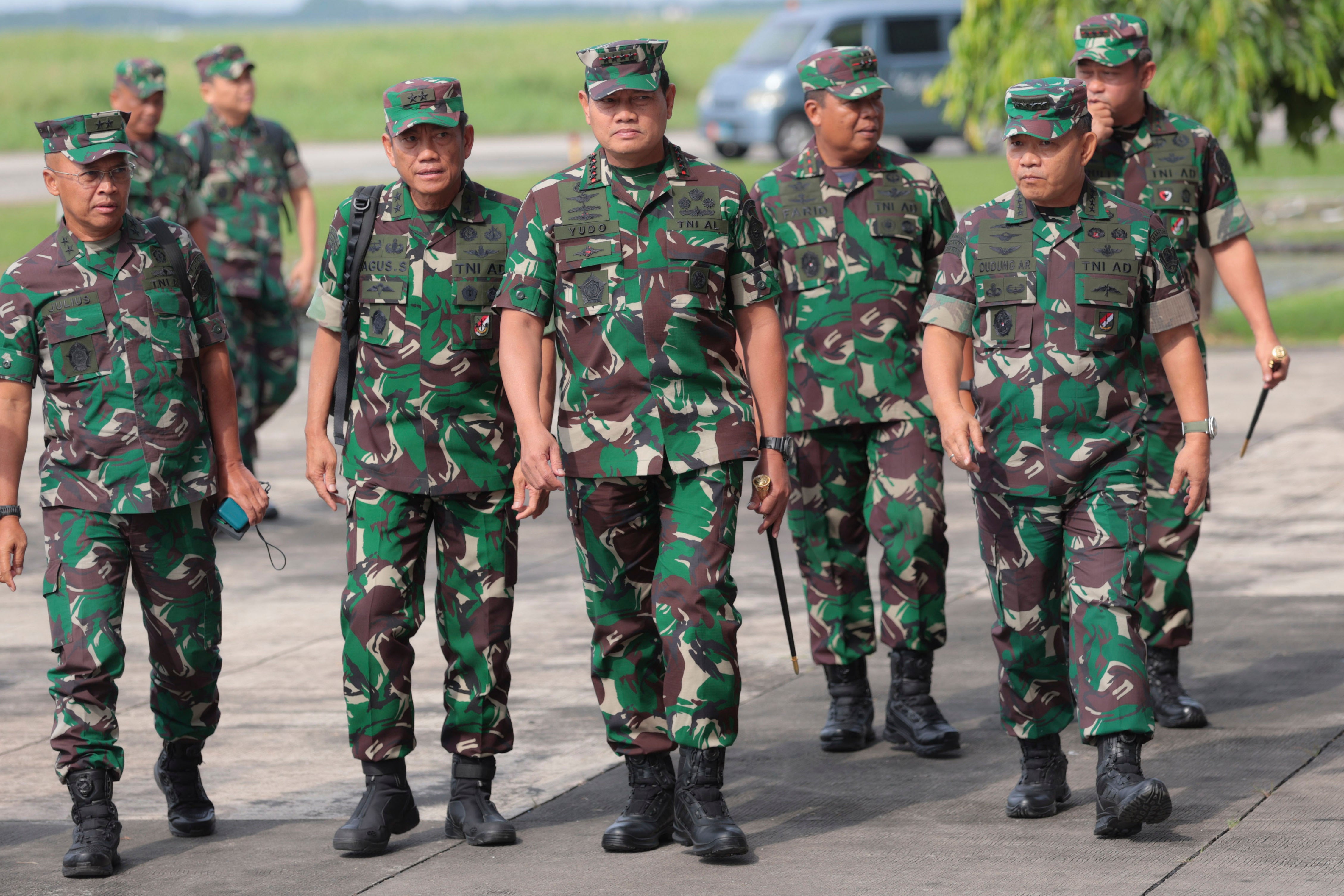Indonesia recovers bodies of 4 troops killed in Papua clash
Indonesian security forces have recovered the bodies of four government soldiers who were killed in a separatist attack while searching for a New Zealand pilot taken hostage by the rebels in Indonesia’s restive Papua region

Your support helps us to tell the story
From reproductive rights to climate change to Big Tech, The Independent is on the ground when the story is developing. Whether it's investigating the financials of Elon Musk's pro-Trump PAC or producing our latest documentary, 'The A Word', which shines a light on the American women fighting for reproductive rights, we know how important it is to parse out the facts from the messaging.
At such a critical moment in US history, we need reporters on the ground. Your donation allows us to keep sending journalists to speak to both sides of the story.
The Independent is trusted by Americans across the entire political spectrum. And unlike many other quality news outlets, we choose not to lock Americans out of our reporting and analysis with paywalls. We believe quality journalism should be available to everyone, paid for by those who can afford it.
Your support makes all the difference.Indonesian security forces recovered the bodies of four government soldiers who were killed in a separatist attack while searching for a New Zealand pilot taken hostage by the rebels in Indonesia’s restive Papua region, officials said Thursday.
The four elite army troops were killed on Saturday after attackers from the West Papua Liberation Army, the armed wing of the Free Papua Movement, ambushed 36 government soldiers in Nduga district in the mountainous Papua Highlands province.
Security forces found the bodies on Wednesday, including that of a soldier who fell into a 15-meter-deep (49-foot) ravine, and evacuated them to a hospital in Timika, a mining city in neighboring Central Papua province, said Papua military spokesperson Col. Herman Taryaman.
The troops were ambushed by the rebels while searching for Phillip Mark Mehrtens, a New Zealand pilot who was abducted by the rebels in February, Taryaman said. The rebels shot a soldier who fell into the ravine, and launched a second attack while troops were trying to get the body out, he added.
Taryaman said security forces are searching for a fifth soldier who is still missing, but bad weather conditions and steep forested terrain have impeded their search and evacuation operation.
Security forces retrieved the bodies of the four soldiers a day after Indonesia’s military chief on Tuesday dismissed the separatist group's claim that it had killed more than a dozen government soldiers in the attack.
Adm. Yudo Margono confirmed only one fatality and said four other soldiers were missing. The rest returned to their post, he said. Five soldiers were wounded and in stable condition and evacuated to a hospital in Timika.
Rebel spokesperson Sebby Sambom said in a statement on Monday that his group’s fighters were holding the remains of 12 soldiers, including nine who he said “were arrested and executed.” The rebels offered no proof to back up their statement.
Sambom said earlier the rebels carried out the attack in retaliation for Indonesia’s “massive military operation” in Papua and the killings of two rebels in a shootout with security forces last month.
Margono rejected the rebel claims as “fake news” and said the military operations in Papua were launched with a view to keep casualties at a minimum. However, he said that authorities will increase pressure on the rebels around several separatist strongholds, including in Nduga.
The rebels in February stormed a single-engine plane shortly after it landed on a small runway in Paro and abducted its pilot. The plane initially was scheduled to pick up 15 construction workers from other Indonesian islands after the rebels threatened to kill them.
Authorities will continue to prioritize a peaceful approach for the release of Mehrtens, Margono said.
The kidnapping of the pilot was the second that independence fighters have committed since 1996, when the rebels abducted 26 members of a World Wildlife Fund research mission in Mapenduma. Two Indonesians in that group were killed by their abductors, but the remaining hostages were eventually freed within five months.
The pilot kidnapping reflects the deteriorating security situation in Indonesia’s easternmost region of Papua, a former Dutch colony in the western part of New Guinea that is ethnically and culturally distinct from much of Indonesia.
Papua was incorporated into Indonesia in 1969, after a U.N.-sponsored ballot that was widely seen as a sham. Since then, a low-level insurgency has simmered in the region, which was divided into five provinces last year to boost development in Indonesia’s poorest region.
Saturday’s fighting is the latest in a series of violent incidents in recent years in Papua where conflicts between indigenous Papuans and Indonesian security forces are common.
Rebels attacks have spiked considerably in recent years, as the government extended infrastructure and the controversial Trans-Papua Highway, a road being built into the heart of highland Papua that has inflamed resistance. Many indigenous Papuans believe the moves are a threat to their identity and traditional way of life, prompting attacks by separatist groups that have been followed by further Indonesian military deployments.
The military activities in Papua have raised concern among rights groups who say the security approach that had been implemented by Jakarta for decades has proven unable to resolve violence in the region.
Amnesty International Indonesia called for prioritizing dialogue with the separatists to prevent potential human rights violations and a larger humanitarian crisis. Data collected by the rights group showed at least 179 civilians, 35 Indonesian troops and nine police along with 23 independence fighters were killed in clashes between rebels and security forces between 2018 and 2022.